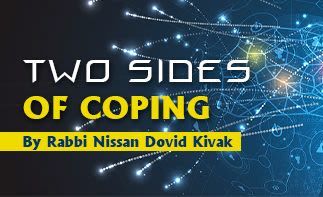
Rebbe Nachman on Learning Torah
Rebbe Natan’s classic Discourse 76 from “Sichot HaRan”, where Rebbe Nachman teaches the efficient way to learn...

Discipline and Liberation
Rabbi Nachman said, “I have very much wanted to inspire people to take on a discipline of learning a certain amount of Torah every day.
“Even people who are very far from holiness and who have become habitual sinners can be inspired by the great power of Torah to abandon their conduct. If they will only take on a strict schedule of a certain amount of learning per day, they will free themselves, for the power of Torah is immense.” (Sichot Haran 19)
When the Torah Shows its Love
Rabbi Nachman rebuked someone for not learning regularly.
“Why don’t you learn? What will you lose? To the contrary, you will receive the world-to-come. More than that, when the Torah shows its love to a person, he won’t even want the world-to-come. He will only want the Torah itself. God Himself learns Torah. As our sages say, ‘For the first three hours of the day, God learns Torah (Avodah Zarah 3b, 4b).’”
“In these generations, due to our sins, Torah learning has become very lax.“The great rabbis of previous generations didn’t know about mystical intentions. Nevertheless, they could cause miracles with their Torah learning. Because of their Torah learning, when they simply said something, it came about.” (Sichot Haran 17)
Dragging Evil to the Study-Hall
“If this low-life, the evil inclination, meets you, drag him to the study hall” (Kiddushin 30b).
At times, the evil inclination prays within a person. The person is like a synagogue in which someone is praying.
At other times, a person is like a study hall in which he evil inclination is learning.
The superior situation is that of the study hall. Our sages said that “if [the evil inclination] is a stone, it will melt [as a result of one’s learning]; if it is metal, it will explode” (ibid.).
One’s Torah learning will vitiate the force of the evil inclination. The sages recommend that one treat the evil inclination by studying, but they do not mention the option of praying.
This is why our sages began by saying, “If this low-life meets you.” The word used here for meeting refers homiletically to prayer, as our sages pointed out (Berachot 26b). In other words, when this low-life is praying within you, and you are only like a synagogue, drag him to the study hall, for it is better that one become like a study hall, since that is more efficacious in dealing with one’s evil inclination. (Sichot Haran 104)
The Traveler Through Torah
While still in this world, a person should go through all the Torah literature, visiting every area of Torah.
The great princes tour various countries and spend vast sums of money so that they will be able to boast afterwards about all the places that they visited.
In the same way, a person should visit all the different areas of the Torah, so that when he arrives at the world-to-come, he will be able to boast that he was in every place—that is, in every book. Then he will be given the ability to recall everything he had learned while in this world. (Sichot Haran 28)
Success Through Visualization
If a person’s thoughts regarding learning Torah are very strong, then what he visualizes will come to pass. His thought must be very strong and determined. For instance, a person may visualize that he will learn the entire Shulchan Aruch (major source of Jewish law and custom) with its major commentaries. He visualizes how he will learn and in how much time—for instance, he will learn five pages a day and finish within a year. He has to visualize this very strongly until his imagination is bound up in it. The same goes for other areas of Torah learning, such as Talmud with the Rif, the Rosh, the Turim, Tanach, and so on. He should desire this strongly and think about it deeply. As a result, he will successfully carry out his intentions.
Rabbi Nachman said that this is the meaning of the words of our sages (Sanhedrin 26b) that “A thought affects one’s Torah learning.” Even though Rashi understands this statement differently, this is what our sages mean. “Both opinions are the words of the living God” (Gittin 6b). (Sichot Haran 62)
Learning Without Comprehension
A person should learn even if he doesn’t understand. (Sefer Hamidot, Learning #38)
Understanding in the World-to-Come
Whatever one learned in this world and didn’t completely understand, one will understand in the world-to-come. (Sefer Hamidot, Learning 8)
Forgetting and Recalling
We have learned (Kohelet Rabbah 1:34) that forgetfulness was created in order to make the Torah as continuously beloved as though one is just beginning. When a person relearns something that he had forgotten, it is as though he is learning it for the first time, and so he enjoys it. The rabbis told the following parable: “A number of men were hired to fill up barrels. These barrels were punctured, and everything that was poured into them spilled out. The fools said, ‘Since the liquid keeps spilling out, why bother filling up the barrels?’ But the wise man said, ‘What concern is it of mine? I get paid by the day, so what do I care if it gets spilled?” Similarly, even if a person forgets what he has learned, God will not deny him his daily payment” (Vayikra Rabbah 19:2).
The Zohar teaches (Genesis 185) that in the future, a person will recall all of his learning that he had forgotten. Also, if a person heard Torah from a true tzaddik and didn’t understand it, in the world-to-come he will understand. This is because Torah is primarily geared to the soul. In the world-to-come, a person’s soul will be expert in Torah and will have a deep understanding of what he had learned in this world. Fortunate is the person who spends his time learning Torah and serving God. (Sichot Haran 26)
Learning Aloud
When one learns Torah, one should speak the concepts aloud in one’s own language. This is good for the world. (Likkutei Moharan 118)
***
From “Chambers of the Palace”, an anthology of Rebbe Nachman’s writings abridged and translated by Yaacov Dovid Shulman. Writer, translator, and editor Yaacov Dovid Shulman can be contacted at: yacovdavid@gmail.com













Tell us what you think!
Thank you for your comment!
It will be published after approval by the Editor.